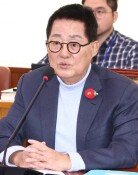[Op-Ed] Time Off System
A leading Korean automaker suffered 102 hours of strike in 2004, 158 in 2005, 324 in 2006, and 478 last year. Workers cannot get paid amid a strike under the governments no work, no pay policy. Union members did not get paid while strikes were ongoing, but all union staff did. While union members received 1.03 million won (889 U.S. dollars) less per person due to the 200 hours of strikes this year at another automaker, their full-time union staff not only got their salaries but also received overtime pay.
In most advanced economies, full-time union members do not get paid. If they get paid, unions would not be free from management control. Supporting wage payments for full-time union workers or financial operation of unions is prohibited as an unfair labor practice under Korean labor law, but enforcement of this regulation has been postponed for 13 years. The delay is due to fears that a sudden stop to this long-standing practice might dampen union activities. Other countries have implemented a time off system that pays wages for limited duties such as group negotiations, complaint handling, and prevention of industrial accidents.
The Labor Ministry, the Federation of Korean Trade Unions and the Korean Employer Federation agreed Friday to prohibit wages for full-time union workers from July next year and adopt a time off system that pays for essential union work. The implementation of the system will not prove challenging as long as time spent on work for the interest of both labor and management is considered as working hours as in other countries. Unions could avoid being criticized as a company union and employers can stick to the principle of no work, no pay. Unfortunately, labor and management are apparently not on the same page. Unions believe that the time off system can guarantee their wages like before, while employers worry that this very scenario will be realized.
The lack of a specific provision on the time off system in the newly reached labor agreement has the potential to spark controversy. The time off system can do its job if financial support to union staff dispatched to higher-level labor organizations is prohibited and the burden on companies shrinks. If the number of full-time union workers grow more than expected and essential working hours for unions rise, however, the time off system will prove useless. This will be no different the past practice of paying full-time union workers. Therefore, clear and specific criteria for the time off system are essential to prevent exhaustive controversy and conflict.
Editorial Writer Park Yeong-kyun (parkyk@donga.com)







